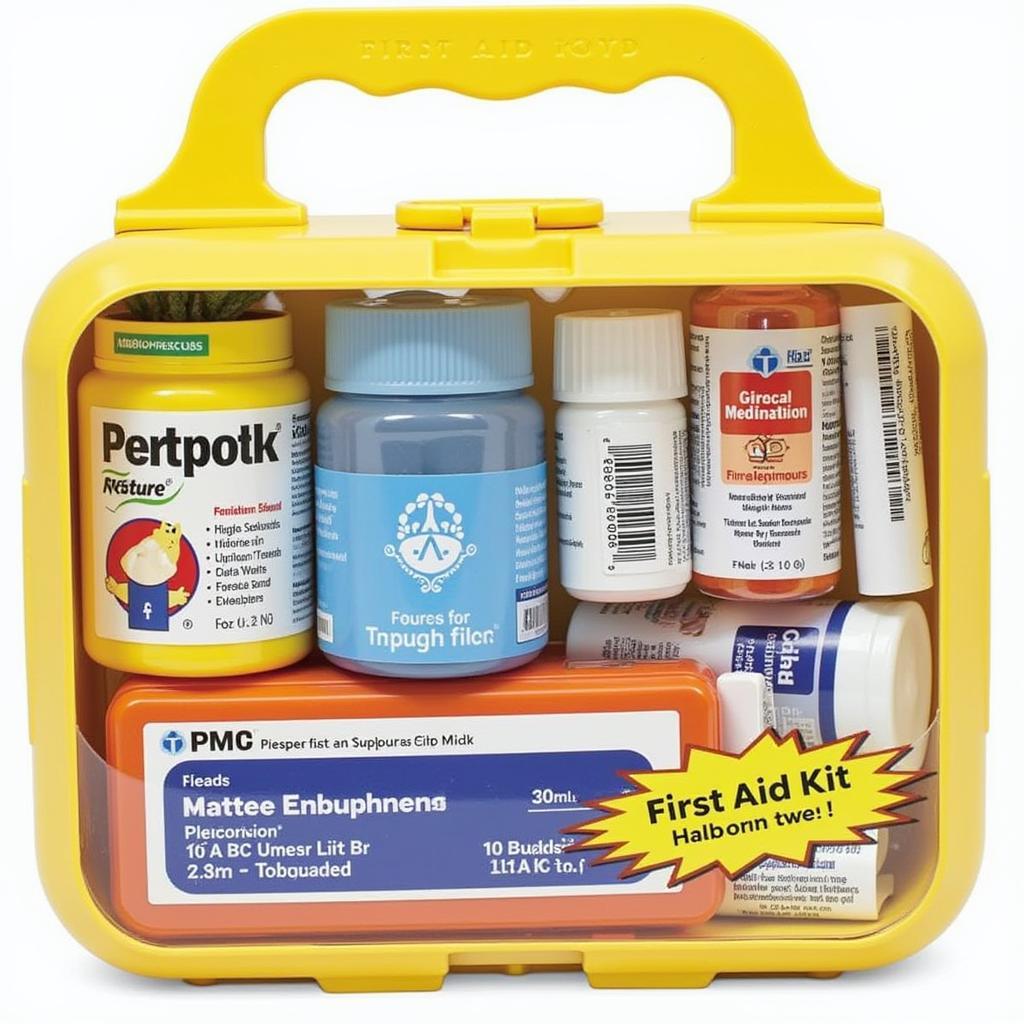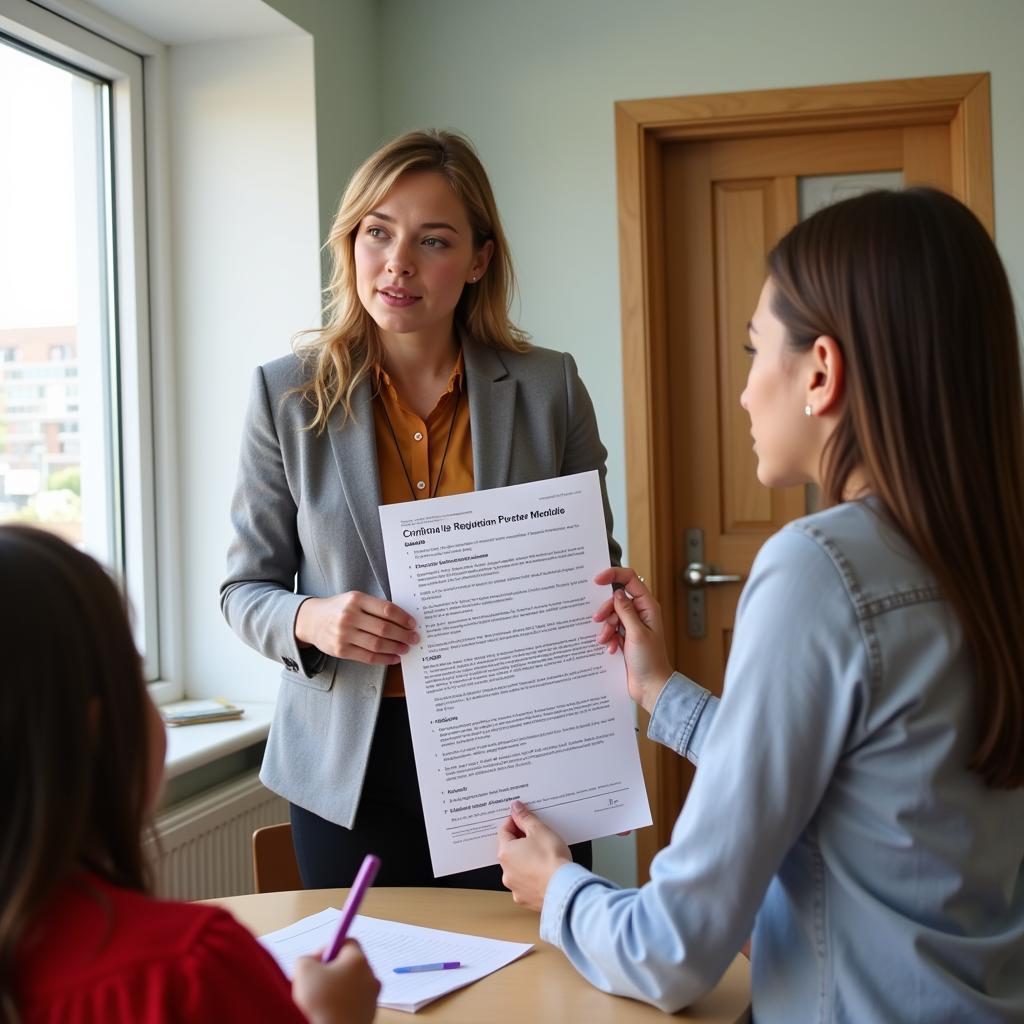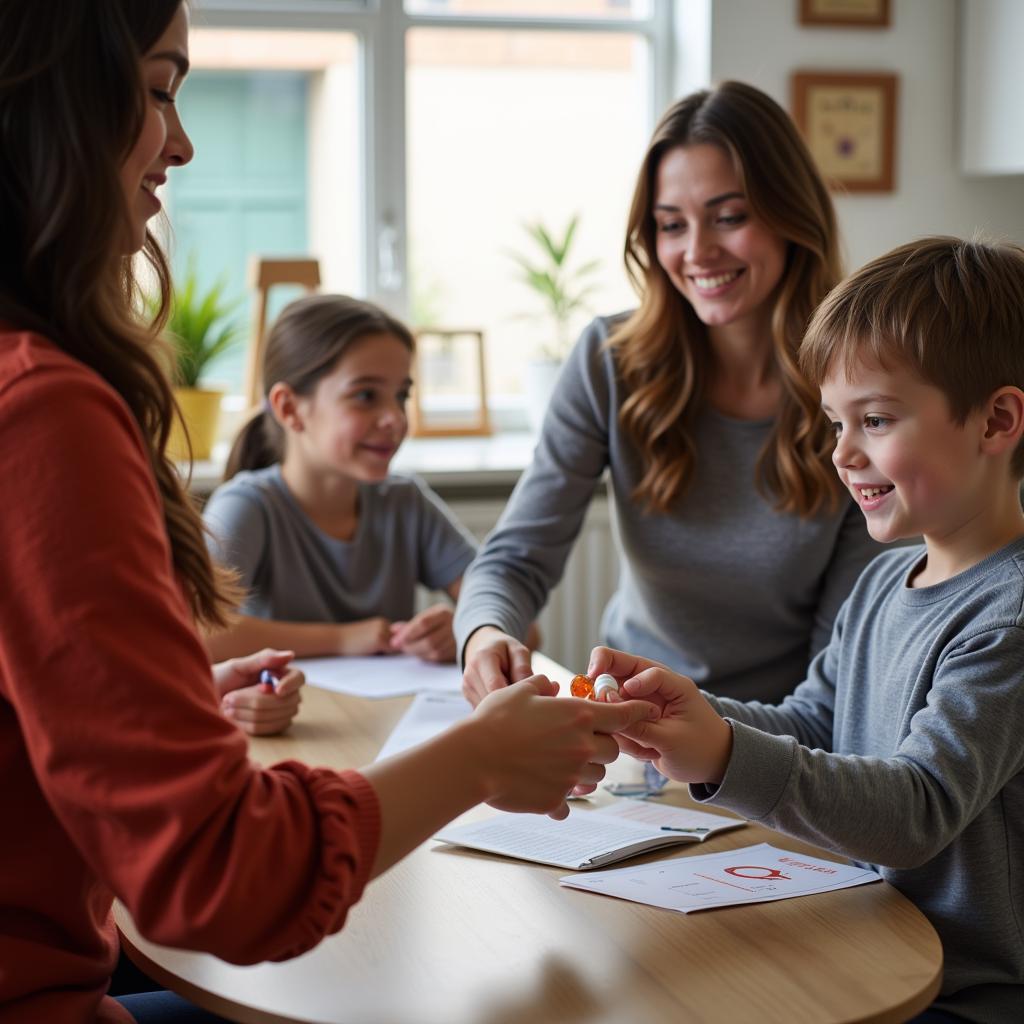“My child is in first grade now, and thankfully, he’s much healthier and doesn’t get sick as often as when he was in preschool,” Baby Minh’s mother shared with her child’s new homeroom teacher, smiling warmly. It’s every parent’s wish for their child to be healthy and happy at school. Have you ever wondered what medicines are allowed in kindergarten? Let’s explore this to feel more at ease when entrusting your little ones to school!
What’s in a Kindergarten’s Magical Medicine Box?
 First aid kit for preschoolers
First aid kit for preschoolers
Just like Doraemon’s magical pocket, the medicine box in kindergarten contains “treasures” to help children quickly recover. However, not all types of medicine are allowed in kindergarten. The list of permitted medicines is strictly regulated and typically includes:
- Fever reducers: Paracetamol (Hapacol, Efferalgan…) in syrup or suppository form, Ibuprofen (Bibofen, Ibrufen…) in syrup form.
- Allergy medications: Loratadine (Clarityne…), Cetirizine (Zyrtec…) in syrup form.
- Eye and nose drops: Sodium chloride 0.9% (physiological saline), antiseptic solutions for eyes and nose.
- Insect bite cream: Gentle gel form, safe for sensitive skin.
- Antiseptics: 70% alcohol, Povidone (Betadine…)
Why Strict Medicine Regulations?
 Kindergarten principal announcing regulations on medication use in schools
Kindergarten principal announcing regulations on medication use in schools
Strict regulations on the list of medicines in kindergarten are essential because:
- Preventing unauthorized medication use: Ms. Nguyen Thi Lan, a veteran kindergarten teacher in Hanoi, shared: “Many parents are worried and want their children to recover quickly from illness, so they bring traditional medicines to school for the teachers to give their children. This is very dangerous because the origin and ingredients of these medicines are unknown.”
- Preventing accidental poisoning: Young children can easily mistake medicine for candy. Strict medicine management helps prevent the risk of children swallowing harmful drugs.
- Complying with legal regulations: Circular 13/2020/TT-BYT of the Ministry of Health has issued clear regulations on the use of medicines in schools.
Parent’s Guide to Sending Medicine to School
 Parent handing medicine to a teacher and reminding her carefully before class
Parent handing medicine to a teacher and reminding her carefully before class
- Clearly “name” your “Cinderella”: Write the full name of the medicine, dosage, and instructions for use on the medicine bottle or container.
- Avoid the “expiration date curse”: Carefully check the expiration date of the medicine and avoid using expired medication.
- “Meet” the teacher: Inform the teacher about your child’s health condition and the medicine you have sent.
When Should a Child Stay Home?
Although kindergartens always have a “magical medicine box” available, in some cases, it’s best for a child to stay home and rest:
- High fever above 101.3°F (38.5°C), accompanied by convulsions or vomiting: This may be a sign of a serious medical condition, and the child needs to be taken to a medical facility immediately.
- Infectious diseases: Such as hand, foot, and mouth disease, chickenpox, measles… to avoid spreading to other children.
“Prevention is better than cure” – Always True
Besides understanding the list of medicines allowed in kindergarten, parents should proactively prevent illness for their children by:
- Boosting children’s immunity: Ensure children eat nutritious food, get enough sleep, and exercise regularly.
- Maintaining good hygiene: Wash hands frequently with soap, and sanitize children’s toys and living environment.
- Getting fully vaccinated: This is the most effective way to prevent diseases.
Let’s work together to build a safe and healthy learning environment for children!
For more detailed advice on children’s health, please contact Phone Number: 0372999999, or visit address: 234 Hao Nam, Hanoi. We have a 24/7 customer care team.